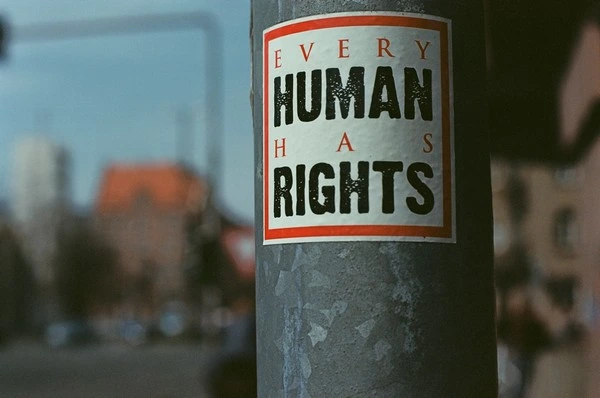Table of Contents
- Defining Rights in Sociology
- The Historical Evolution of Rights
- Types of Rights
- The Sociological Significance of Rights
- The Future of Rights in Sociological Discourse
- Conclusion
The concept of rights is fundamental to the study of sociology, as it shapes the boundaries of individual autonomy, social justice, and collective responsibility within societies. Rights are claims or entitlements that individuals or groups can invoke in relation to others or the state, often codified by legal, moral, or social norms. They influence social structures, interactions, and institutions, affecting everything from daily life to broader power dynamics. This article will explore the definition of rights, their historical development, types, and sociological significance, offering a detailed look into how rights shape societies.
Defining Rights in Sociology
Rights, in their simplest form, are entitlements or permissions granted to individuals by virtue of their membership in a society, group, or state. These entitlements are not merely abstract concepts but are often enshrined in legal frameworks, ethical codes, and social contracts. In sociology, rights are seen as socially constructed; they reflect the values, priorities, and conflicts within a society at any given time.
From a sociological perspective, rights represent a form of social control and organization. They regulate behavior by establishing what individuals can expect from others and the state, as well as what society expects from individuals. Rights play a crucial role in maintaining social order and cohesion by balancing the freedom of the individual against the needs and interests of the collective. This balancing act reveals the inherent tension between individualism and collectivism in sociological thought.
The Historical Evolution of Rights
The concept of rights has evolved over time, influenced by cultural, political, and economic changes. Historically, rights were not granted to all individuals but were limited to specific groups based on factors such as class, gender, race, and status. Ancient societies, for example, often restricted rights to a select few, such as citizens or elites, while excluding marginalized groups, including women, slaves, and foreigners.
The modern understanding of rights largely stems from the Enlightenment period, which introduced ideas of natural rights and universal human dignity. Thinkers like John Locke and Jean-Jacques Rousseau championed the notion that individuals possess inherent rights by virtue of being human. These ideas were instrumental in shaping democratic revolutions, such as the American and French revolutions, which sought to enshrine individual rights in legal frameworks.
In the 20th century, the notion of rights expanded significantly, influenced by global movements for civil rights, gender equality, and decolonization. The development of international human rights law, particularly through documents like the Universal Declaration of Human Rights (1948), marked a significant shift toward recognizing the universality of rights across different societies.
Types of Rights
Rights can be classified into several categories, reflecting the complexity of their function within society. Understanding these categories helps clarify the different ways rights operate in various social contexts.
Civil and Political Rights
Civil and political rights are the most familiar types of rights, often associated with democratic societies. These rights protect individual freedoms and ensure participation in the political process. Key examples include the right to freedom of speech, the right to vote, and the right to a fair trial. Civil rights protect individuals from abuse by the state or other individuals, while political rights enable participation in governance and decision-making processes.
In sociology, civil and political rights are often seen as mechanisms for safeguarding individual autonomy while promoting political stability. They reflect the tension between state authority and individual freedom, highlighting how societies negotiate power and control. Political theorists argue that these rights are essential for creating accountable governments and ensuring the representation of diverse interests within society.
Economic, Social, and Cultural Rights
Economic, social, and cultural rights address issues related to the well-being and development of individuals and communities. These include the right to education, the right to health care, the right to housing, and the right to work. These rights are often seen as prerequisites for individuals to exercise their civil and political rights meaningfully.
From a sociological perspective, economic, social, and cultural rights are crucial for addressing inequalities within society. They recognize that true freedom and autonomy are not possible without addressing systemic barriers such as poverty, discrimination, and lack of access to essential services. These rights emphasize the interconnectedness of individual well-being and societal structures, advocating for policies that promote social justice and equity.
Collective Rights
While many rights focus on the individual, collective rights emphasize the entitlements of groups, particularly those that have been historically marginalized or oppressed. These include the rights of indigenous peoples, minority groups, and future generations. Collective rights often address issues related to self-determination, cultural preservation, and environmental protection.
In sociology, collective rights challenge the individualistic focus of traditional rights discourses. They recognize the importance of community and identity in shaping social life and argue that groups, not just individuals, are entitled to protection and support. Collective rights also raise questions about the limits of state authority and the role of social movements in demanding justice and recognition for marginalized groups.
The Sociological Significance of Rights
Get the full article AD FREE. Join now for full access to all premium articles.
View Plans & Subscribe Already a member? Log in.





